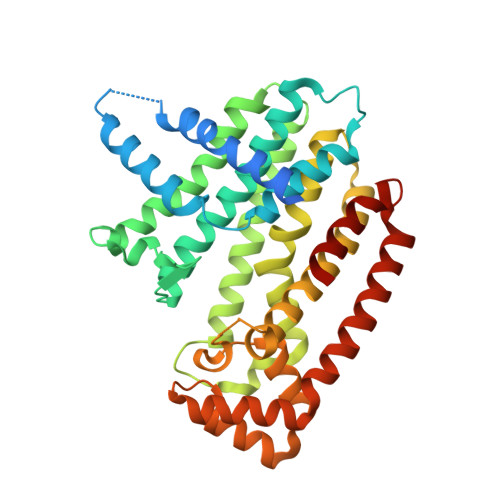Human farnesyl pyrophosphate synthase is allosterically inhibited by its own product.
Park, J., Zielinski, M., Magder, A., Tsantrizos, Y.S., Berghuis, A.M.(2017) Nat Commun 8: 14132-14132
- PubMed: 28098152
- DOI: https://doi.org/10.1038/ncomms14132
- Primary Citation of Related Structures:
5JA0 - PubMed Abstract:
Farnesyl pyrophosphate synthase (FPPS) is an enzyme of the mevalonate pathway and a well-established therapeutic target. Recent research has focused around a newly identified druggable pocket near the enzyme's active site. Pharmacological exploitation of this pocket is deemed promising; however, its natural biological function, if any, is yet unknown. Here we report that the product of FPPS, farnesyl pyrophosphate (FPP), can bind to this pocket and lock the enzyme in an inactive state. The K d for this binding is 5-6 μM, within a catalytically relevant range. These results indicate that FPPS activity is sensitive to the product concentration. Kinetic analysis shows that the enzyme is inhibited through FPP accumulation. Having a specific physiological effector, FPPS is a bona fide allosteric enzyme. This allostery offers an exquisite mechanism for controlling prenyl pyrophosphate levels in vivo and thus contributes an additional layer of regulation to the mevalonate pathway.
Organizational Affiliation:
Department of Biochemistry, McGill University, 3649 Promenade Sir William Osler, Montreal, Quebec, Canada H3G 0B1.
















